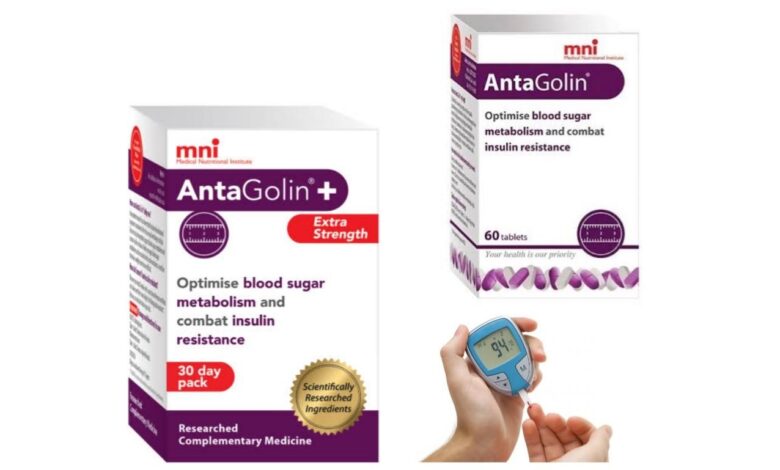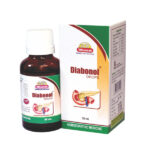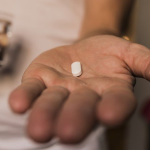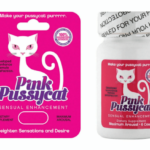AntaGolin: Ingredients, Uses, Dosage, Side Effects

AntaGolin is a supplement manufactured by the Medical Nutritional Institute MNI, it is used to optimize blood-sugar metabolism and combats insulin resistance. Insulin resistance is when cells in your muscles, fat, and liver don’t respond well to insulin and can’t use glucose from your blood for energy. To make up for it, your pancreas makes more insulin. Over time, your blood sugar levels go up.
Poorly managed blood sugar metabolism can be associated with insulin resistance, a condition that makes it difficult to lose weight.
AntaGolin contains a unique blend of plant-derived (phytochemical) compounds that have all been scientifically documented to help regulate blood sugar and insulin levels. These ingredients work together to slow the absorption of glucose from food, as well as support and optimize the body’s response to increased blood sugar. These are Barberry root extract, Banaba leaf extract, Apple bark extract, and inositol.
Barberry root extract contains berberine, a botanical alkaloid present in a number of plants that have been used in traditional Chinese medicine for a number of conditions, including obesity and diabetes. Berberine is one of the most heavily researched plant-based compounds available and has demonstrated the ability to slow carbohydrate digestion and absorption, improve insulin signaling, suppress fat formation, and enhance energy metabolism.
Banaba leaf extract is prized in some Eastern medicine systems for its ability to alter blood sugar levels. The tree is native to India, China, and the Philippines, and is valued for its violet floral displays. Its ability to reduce blood sugar, inflammation, and carbohydrate absorption as well as improve insulin signaling has been proven scientifically.
Apple bark extract (Phlorodene)
Phlorodene is a proprietary formulation prepared from the bark of apple trees (Malus domestica). Besides their nutritional benefits as fruit, several substances extracted from the bark, leaves, and roots of the apple tree are also recognized for their unique medicinal qualities. Phlorizin, a phytochemical belonging to the class of polyphenols, was isolated from the bark of apple trees in 1835 and is the first known inhibitor of SGLT-2 (sodium-glucose linked co-transporter-2).
SGLT-2 is a protein that assists with glucose transport and is responsible for the reabsorption of 80-90% of the glucose filtered by the kidney. As a class of medications, the SGLT-2 inhibitors impede this process and help block the reabsorption of glucose in the kidney. The net metabolic effect is to help lower blood sugar which assists with bodyweight reduction and optimized blood sugar control.
Traditionally, phlorizin-rich apple bark has been used as an adjunct to diet and exercise to improve glycaemic control in adult patients with type 2 diabetes. It has also been reported to reduce the risk of cardiovascular death in adult patients with type 2 diabetes mellitus and cardiovascular disease. As a polyphenol, phlorizin also exerts cardiovascular benefits in preventing heart failure through a mechanism independent of its blood glucose-lowering effects.
Inositol is a plant-based compound similar in structure to glucose. It is present in a wide variety of foods, including beans and nuts, and is naturally synthesized in the body. Scientific research has shown it is able to block glucose absorption from the diet, as well as aid in insulin signaling.
One tablet contains:
| Ingredients | |
| Insul-X2 Contains: Barberry root extract 60% Additives are: Chromium | 65mg 14mcg |
| Apple bark extract | 10mg |
| Banaba leaf | 750mg |
| Inositol | 80mg |
If insulin resistance is not identified and managed, it can lead to numerous conditions including increased weight gain, diabetes, Polycystic ovary syndrome, abnormal cholesterol, or cardiovascular disease.
What does AntaGolin do?
AntaGolin optimizes blood-sugar metabolism and combats insulin resistance. AntaGolin’s unique blend of natural ingredients works together to combat insulin resistance by supporting multiple pathways involved in blood sugar metabolism.
Who should not use AntaGolin?
AntaGolin should not be used if you:
- are hypersensitive or allergic to any of the ingredients contained within AntaGolin
- are pregnant or breastfeeding
- have advanced kidney disease
- suffer from severe low blood pressure
How should I take AntaGolin?
Take 2 AntaGolin three times a day, with meals.
OR
Adults: Starting Dose:
Take 1 AntaGolin updated extra strength formulation three times a day, with meals.
Maintenance Dose:
Take 1 AntaGolin updated extra strength formulation twice a day with meals
What are the side effects of AntaGolin?
AntaGolin generally has a low side-effect profile even when used for extended periods. Gastrointestinal side effects, including abdominal fullness and nausea, have been reported. Individuals on diabetic medication may develop low blood sugar, especially if AntaGolin is taken on an empty stomach. It is therefore recommended that AntaGolin is taken with meals.





